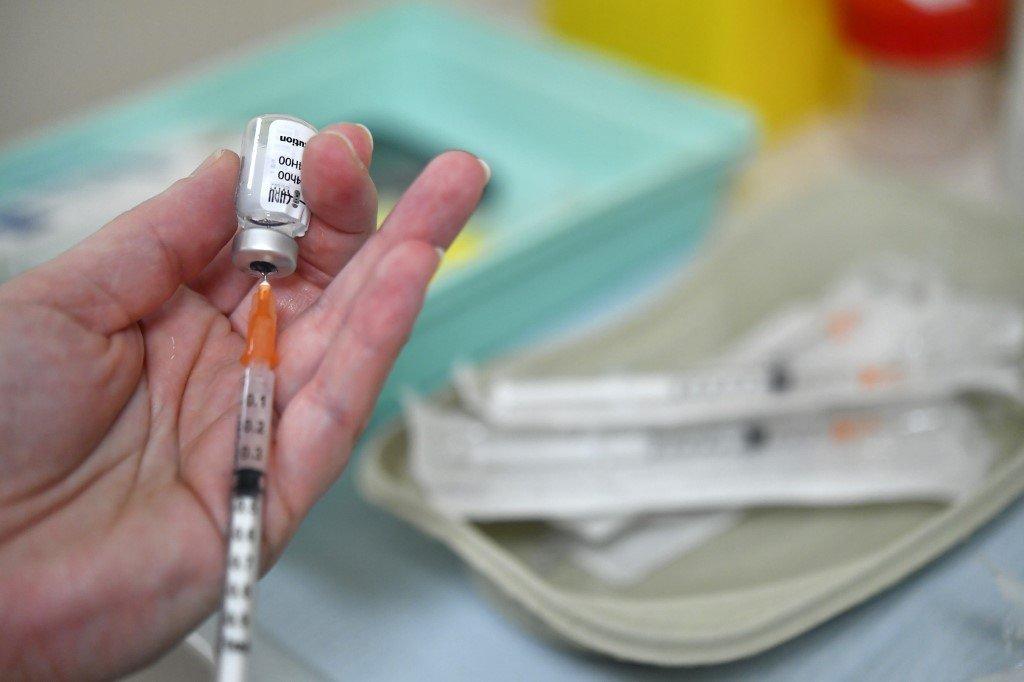WHO backs AstraZeneca as expert trades barbs with US
WHO says AstraZeneca's jabs can be used on people aged over 65 and also in places where new variants of Covid-19 are circulating.
Just In
The World Health Organization (WHO) on Wednesday backed the embattled drug company AstraZeneca’s coronavirus vaccine, as one of its experts exchanged barbs with the US government over a controversial mission to probe the pandemic’s origins in China.
WHO said AstraZeneca’s jabs could be used on people aged over 65 and also in places where new variants of Covid-19 are circulating, following recent questions over the efficacy of the British-Swedish firm’s vaccine.
And there was further good news for AstraZeneca as the company announced it would work with German firm IDT Biologika to produce more vaccines for Europe, where shortages of doses have sparked a bitter dispute with the EU.
Covid-19 has killed more than 2.3 million people since emerging in China in late 2019.
Germany prolonged its restrictions until March 7 after the European Union passed 500,000 deaths on Wednesday, with many EU countries struggling to get momentum behind their vaccine rollouts.
The EU’s top official admitted in a public forum for the first time that the bloc had botched some aspects of its vaccine strategy.
“We were late to authorise. We were too optimistic when it came to massive production,” European Commission chief Ursula von der Leyen told the European Parliament.
Even Russia, widely hailed for its homegrown Sputnik V jab, has only managed to fully vaccinate just over two million people, two months into its programme – half as many as have been infected in the country.
The EU’s EMA medicines regulator on Wednesday denied reports the Sputnik V developers had applied for it to review the shot, saying only that the Russians had expressed “interest”.
Separately, the EMA said it had asked all vaccine makers to test their products for protection against new coronavirus mutations, saying some changes “could impact… the ability of the vaccines to protect against infection and disease”.
Russia’s neighbour Ukraine meanwhile confirmed it has launched a corruption probe into the country’s purchase of almost two million doses of the Chinese-made CoronaVac vaccine for US$18 per shot.
Away from vaccines, a US study published Wednesday found that wearing two masks or one closer-fitting model provided twice as much protection.
A cloth mask on top of a medical mask filtered 92% of cough particles, compared with just over 40% for either alone, Centers for Disease Control and Prevention (CDC) researchers found.
‘US intel wrong’
Questions over the handling of the initial outbreak have meanwhile sparked a diplomatic row between Washington and Beijing.
A joint Chinese-WHO mission to the ground zero city of Wuhan wrapped up on Tuesday without any concrete answers, and US officials said they would not accept the findings before verification with their own intelligence.
The jibe prompted WHO team member Peter Daszak to tweet: “Please don’t rely too much on US intel: increasingly disengaged under Trump & frankly wrong on many aspects.”
As the blame game plays out, hundreds of millions of people are still living under severe restrictions including curfews and full lockdowns, and many businesses are beginning to take a more strident tone with their governments.
“We are suffocating,” read a banner at a rally in Greece’s capital Athens, where people face an even tighter regime from Thursday as Prime Minister Kyriakos Mitsotakis warned of a third wave.
Frustrations were also boiling over in Israel, where security forces and ultra-orthodox Jews clashed in the latest in a series of protests against coronavirus restrictions.
“Stop the harassment of religion on health grounds,” read one banner, highlighting that curbs are being lifted more slowly in ultra-orthodox districts because of higher infection rates.
Israel has so far given more than 40% of its population at least one vaccine shot, leaving the rest of the world to play catch-up.
South Korea on Wednesday authorised the AstraZeneca shot for people aged 18 and above, including over-65s.
Japan will start vaccinations next week – most likely with the Pfizer/BioNTech jab – but it is scrambling to secure suitable syringes so doses are not wasted.
Valentine wedding ban
AstraZeneca has faced a tough few weeks, with European leaders casting doubt on the efficacy of its jabs for over-65s and a small South African study suggesting it performed badly against their local strain.
Before Wednesday’s announcements from WHO, South African officials said they were considering selling or swapping the jabs they had already bought, opting to stock up on another vaccine made by rival Johnson & Johnson.
“There are already countries who are asking to sell it to them,” said Health Minister Zweli Mkhize.
As vaccine rollouts rumble on, governments still face the thorny issue of persuading restless populations to abide by social-distancing rules – a particular problem this weekend when couples will look for a way to mark Valentine’s Day on Sunday.
Thailand’s capital Bangkok has banned people from getting married on the day, usually a popular time for weddings, while Brussels hotels have converted rooms into private dining salons for two.
Subscribe to our newsletter
To be updated with all the latest news and analyses daily.
